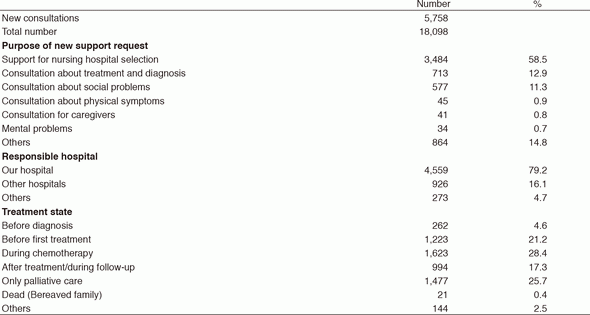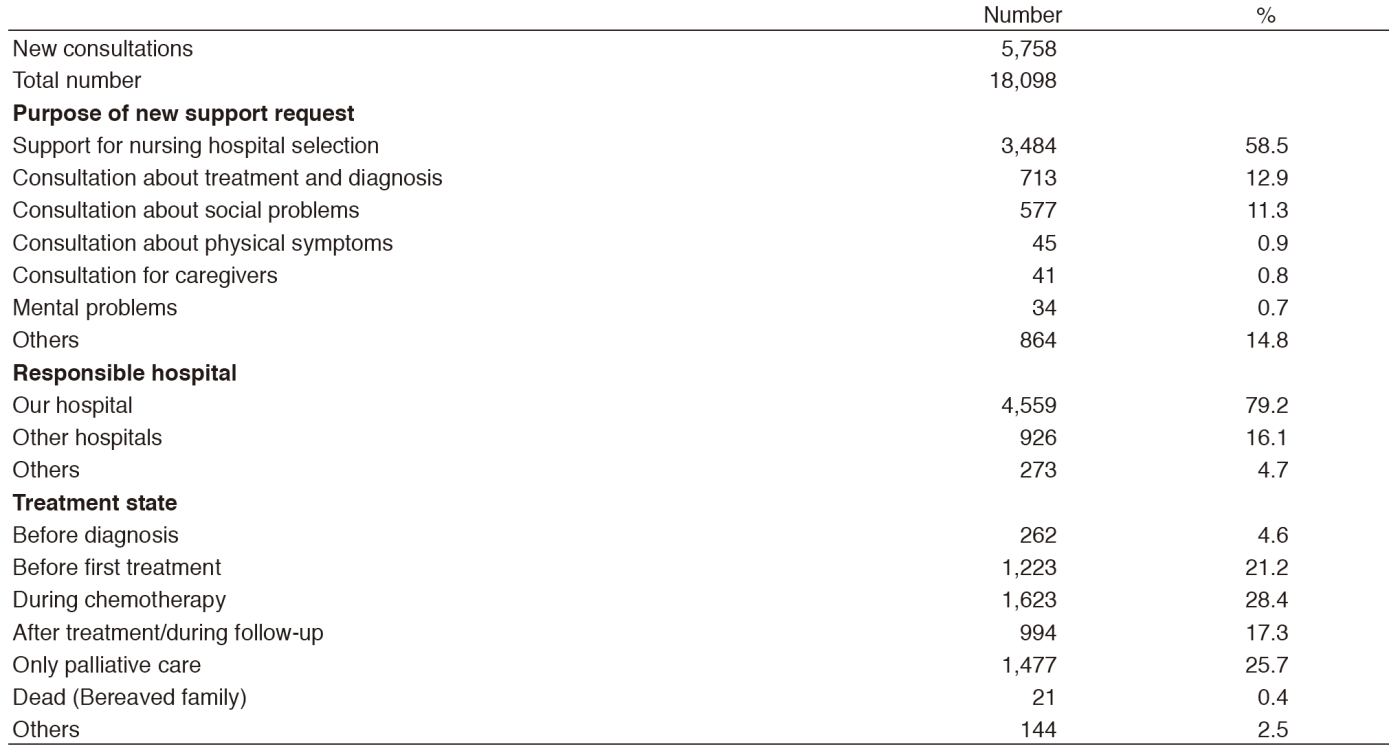HOME > Publication & Reports > Annual Report 2016 > Hospital East
Supportive Care Center
Koichi Goto, Sadatomo Zenda, Yumiko Uchiyama, Hatoe Sakamoto
Introduction
The Supportive Care Center was established as an organization to provide, in addition to conventional consultation support, positive and comprehensive support from a variety of professional occupations for actual or potential, physical, mental, and social problems that cancer patients and their families have to confront. Our main activities are the establishment of a continuous support system for patients and their families, the enhancement of a home care support system, and the promotion of community cooperation for establishing early palliative care.
Research activities
1.Consultation support/community medicine cooperation
In 2016, we received 5,758 (up 11.2% over 2015) new consultations. Among them, 4,559 (79.2%) were from patients who had received medical treatment from our hospital, or their families, and 1,199 (20.8%) were from patients who had received medical treatment at other medical institutions, or their families, or local medical welfare workers (Table 1).
Table 1. Details of the consultation support provided in 2016


We provided educational services for cancer patients such as oral care programs, skin and nail care programs, and physical rehabilitation programs to improve the quality of life of patients under treatment. In 2016, 159 events were held and 617 people participated.
The new building, which is named NEXT, for enlarged operating and endoscopic rooms is under construction in our hospital. Therefore, to acquire more new patients, we have started new case conferences held in communities in order to build face-to-face relationships between the physicians of our hospital and local physicians.
2.Continuous nursing support
For outpatients, we provide continuous nursing support. In 2016, we provided continuous support and consultation services to approximately 1,900 patients, mainly in the areas of thoracic and gastrointestinal oncology.
In order to promote self-care by inpatients and/or their families, as well as to secure appropriate social resources, we provide medical and social support with a view to home care even in the early stage of hospitalization. We carried out a screening program for approximately 3,370 patients who needed social support and provided them with the appropriate support.
In order to sustain seamless medical and social support, we strengthen the cooperation with home-visit nursing stations to deal with problems faced by home care patients and/or their families, mainly related to medical management. In 2016, we carried out interventions with approximately 830 phone-calls and face-to-face consultations.
